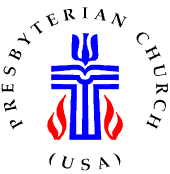SPIRITUAL POSTING, August, 2019, from Rev. Bill Charles
John 15:13 reads, “Greater love has no one than this: to lay down one’s life for one’s friends.”
This Jesus quote points our way in a challenging direction. Whether it be certain aspects of our lives or the whole of our lives, we are inclined to strive to gain—often accumulate— still more than we have (and more than we need). Moreover, we are even more inclined to preserve what we have. According to scientific studies, we hate losing even more than we like winning. When the language turns to “laying down one’s life”—friends or not—we quickly develop second thoughts. C’mon, Jesus, get real!
The 75th anniversary D-Day observance held this year in France reminded us that fewer and fewer veterans of World War Two remain. In the midst of the horrid complications of war, combatants were called upon to lay down their lives for their friends. Among the most storied sacrificial acts of World War Two is that of the four “Immortal Chaplains.” These chaplains—Protestant, Catholic, and Jewish—gave up their life jackets and their lives—when the troop ship (the SS Dorchester) on which they were traveling was sunk by a torpedo from German U-boat 223 on February 3, 1943. Given the coldness of the Atlantic Ocean and the night air into which all were plunged, even a life jacket was no guarantee of survival. It was a given, though, that the absence of life jacket meant all but certain death. The chaplains, united in prayer, went down with the ship along with hundreds of others who had neither life jackets nor boats.
Who were these persons who responded with heroism when the time for heroism came? George L. Fox was a Methodist from Vermont. Alexander D. Goode was a Reform Jew from Washington, D. C. Clark V. Poling was a Reformed Protestant from New York. John P. Washington was a Catholic from New Jersey. Their spiritual paths were as varied as their states until they met at chaplain’s school at Harvard prior to assignment to the Dorchester. (Google “Immortal Chaplains” for sill more detail.)
Several years after the war the chaplains were memorialized by a postage stamp to add to other memorials that tell their stories unto this day. At ceremonies in 1961 they were posthumously awarded the Distinguished Service Cross, the Purple Heart, and the Four Chaplains Medal (authorized by an act of Congress in 1960).
Picture: A photograph of the stamp commemorating the Four Chaplains on the first day of issue (on a commemorative envelope emphasizing themes important in the immediate post-WWII era: unity, brotherhood, one God (albeit worshipped in different ways).
Prayer: We thank you, God, for the examples of sinners who go beyond our meagre offerings of love and sacrifice to heights we rarely see. If we should be called upon to give “the full measure of devotion” in the Spirit of Jesus, grant us the “peace that passes understanding.” Through Christ we pray. Amen.



